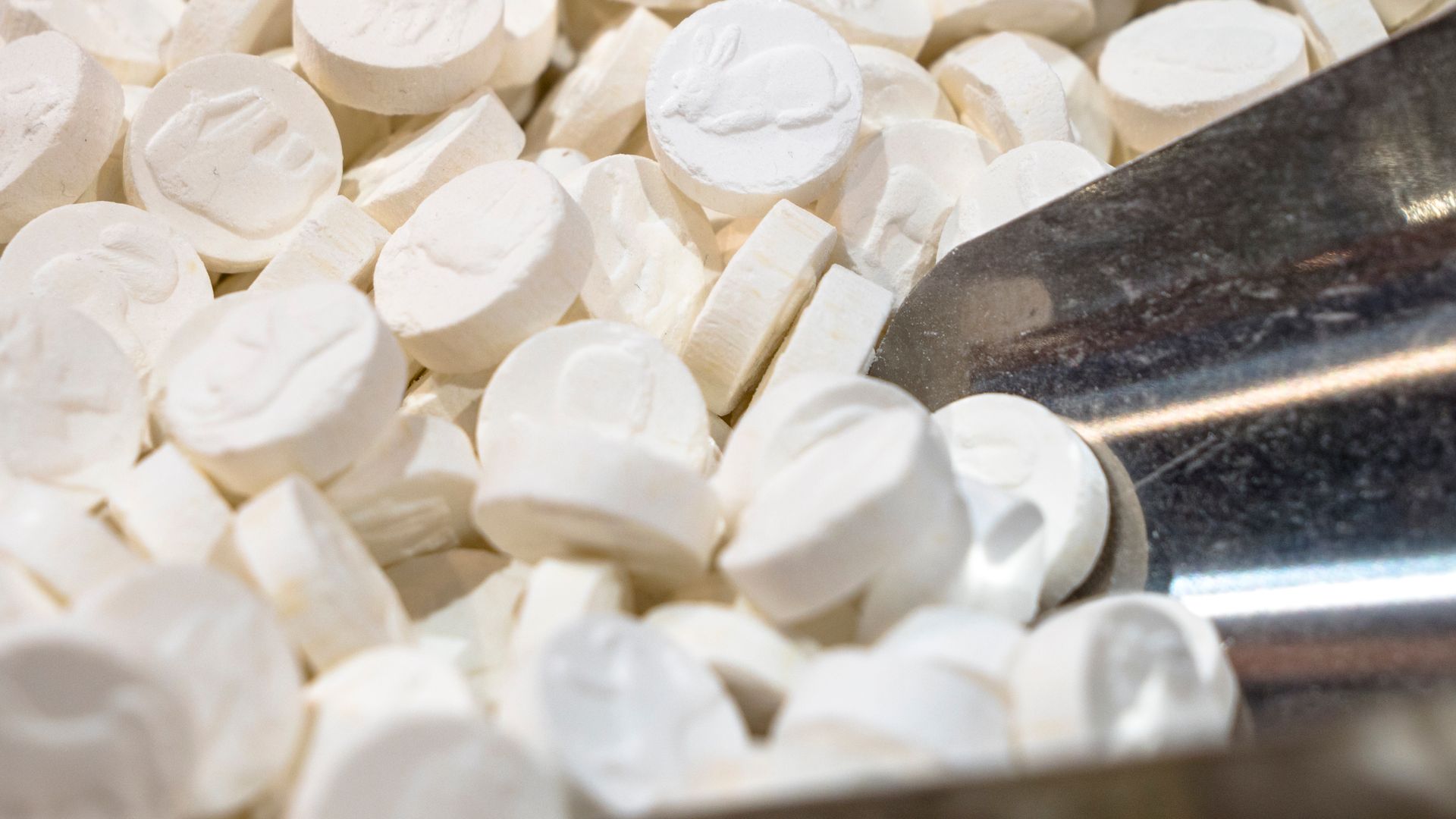
[LAUREN TAYLOR]
A FOOD AND DRUG ADMINISTRATION PANEL OF EXPERTS SAID ON TUESDAY, JUNE 4, IT WON’T RECOMMEND THE USE OF MDMA, MORE COMMONLY KNOWN AS ECSTASY OR MOLLY, TO TREAT POST-TRAUMATIC STRESS DISORDER. THE PANEL SAID AVAILABLE EVIDENCE FAILS TO SHOW THAT THE DRUG IS EFFECTIVE OR THAT ITS BENEFITS OUTWEIGH ITS RISKS.
AFTER PUBLIC COMMENT AND DISCUSSION, THE PANEL VOTED 9-2 THAT MDMA IN COMBINATION WITH TALK THERAPY IS NOT EFFECTIVE FOR TREATING PTSD. THEY ALSO VOTED 10-1 THAT THE BENEFITS OF MDMA TREATMENT DO NOT OUTWEIGH ITS RISKS.
THIS WAS THE FIRST TIME FDA ADVISERS HAVE CONSIDERED A PSYCHEDELIC DRUG FOR MEDICAL USE. MDMA IS KNOWN AS AN ENTACTOGEN, A CLASS OF PSYCHOACTIVE DRUGS THAT PRODUCE EXPERIENCES OF EMOTIONAL COMMUNION, RELATEDNESS, AND EMOTIONAL OPENNESS. IT’S CURRENTLY CLASSIFIED AS A SCHEDULE I DRUG UNDER THE CONTROLLED SUBSTANCES ACT.
THE PANEL’S VOTE MARKS A MAJOR SETBACK FOR PROPONENTS OF THE TREATMENT, BUT THE FDA HAS FINAL SAY ON WHETHER THE TREATMENT IS FORMALLY APPROVED. THE AGENCY DOES USUALLY FOLLOW RECOMMENDATIONS FROM ITS INDEPENDENT ADVISORY COMMITTEES, HOWEVER.
ACCORDING TO ESTIMATES FROM THE NATIONAL CENTER FOR PTSD, NEARLY 5% OF ADULTS IN THE U.S. EXPERIENCE PTSD EVERY YEAR. THAT AMOUNTS TO ABOUT 13 MILLION PEOPLE.
THE NATIONAL CENTER FOR PTSD SAYS CURRENT TREATMENT OPTIONS, LIKE ANTIDEPRESSANTS AND SOME SPECIALIZED FORMS OF COGNITIVE BEHAVIORAL THERAPY, ARE LIMITED IN THEIR SCOPE AND EFFECTIVENESS, AND THERE ARE FEW ALTERNATIVES AVAILABLE TO HELP THOSE DON’T RESPOND WELL TO THEM.
AT TUESDAY’S MEETING, TREATMENT SPONSOR LYKOS THERAPEUTICS SHOWED POSITIVE DATA FROM TWO LATE-STAGE CLINICAL TRIALS THAT USED MDMA IN COMBINATION WITH THERAPY TO TREAT PTSD. HOWEVER, FDA ADVISORS SAID SEVERAL SHORTCOMINGS—NOTABLY REGARDING BIAS IN EFFICACY DATA AND MISSING INFORMATION ABOUT SAFETY—RAISED CRITICAL DOUBTS.
LYKOS SAYS ABOUT 200 PEOPLE PARTICIPATED IN ITS TRIALS. THE TTREATMENT PROGRAM INVOLVED THREE EIGHT-HOUR SESSIONS WHERE PARTICIPANTS TOOK MDMA IN THE PRESENCE OF TWO THERAPISTS. THE MDMA SESSIONS WERE SPACED ABOUT A MONTH APART AND INTERSPERSED WITH ADDITIONAL THERAPY SESSIONS.
IN AN FDA BRIEFING, THE AGENCY SAID THE STUDY’S PARTICIPANTS APPEARED TO “EXPERIENCE RAPID, CLINICALLY MEANINGFUL, DURABLE IMPROVEMENT IN THEIR PTSD SYMPTOMS.” BUT IT ALSO SAID, “SEVERAL FACTORS MAKE THESE DATA CHALLENGING TO INTERPRET AND COMPLICATE THE BENEFIT-RISK ASSESSMENT FOR THIS APPLICATION”.
MDMA IS ALSO KNOWN TO COMMONLY BE ABUSED, AND THE FDA SAID THE RESEARCH DID NOT ASSESS THAT AS A POTENTIAL ADVERSE EVENT. FURTHERMORE, REPORTS FROM ILLICIT MDMA USE SUGGEST THAT IT MAY POSE RISKS TO BOTH HEART AND LIVER HEALTH. WHILE RESULTS FROM THE STUDY DID FIND MDMA USE INCREASED PATIENTS’ BLOOD PRESSURE AND PULSE, ONLY LIVE HEALTH WAS ONLY ASSED IN A SMALL NUMBER OF PATIENTS.
SOME PANEL MEMBERS ALSO BROUGHT UP ALLEGATIONS THAT HAVE SURFACED OVER POSSIBLE MISCONDUCT AND BIAS IN THE TRIALS. FDA SCIENTISTS ACKNOWLEDGED THE AGENCY WAS INVESTIGATING SOME OF THE CLAIMS BUT DID NOT GIVE ANY MORE DETAILS.





